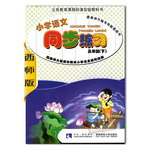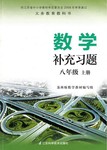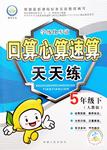题目内容
High school students are some of the busiest people in the world. To get the most from all you do, you must be in control of your time. Otherwise decision that affect how well you play the game, what position you play and when you get to play will be decided for you. Your success in high school depends on your use of time. Here are some important things to remember.
·Begin each term by filling in a master plan. First fill in things you must do (classes, work, practice, etc. that you can’t change.) Then find the most effective use for these times.
·Set a regular time and place for study. This will save your time in the long run. If you have a study hall in your school, use it!
·Use daylight hours to study whenever possible. For most people for every hour of study done in daylight hours, it will take them one and a half hours to do the same task at night.
·Take breaks. Don’t plan marathon study time. Have a short rest before you study again.
·By using flash cards or summary sheets, you can use odd times to study while you’re waiting for class to start or for a friend to pick you up.
·If possible, plan study time with a partner. Choose your partner wisely however. Make sure you study, not socialize.
·Do the most difficult tasks for times when you are active. (For example, when you’re energetic, it will become easier to solve maths questions; when you’re tired, it will be impossible!)
·Make a daily checklist. Do the most important tasks first.
According to the passage, your success in high school mainly lies in _________.
A. making full use of your time B. your hard work
C. your brainpower D. how well you play the game
We should use daylight hours to study whenever possible because __________.
A. school study halls are open to students only in the daytime
B. most people can spare more time to study in the daytime
C. it’s more difficult to study effectively at night
D. we have more important things to do than study at night
On how to use our time, we should follow the following suggestions EXCEPT _______.
A. working out a complete plan for the whole term
B. keeping a good balance between study and rest
C. putting the most important tasks first
D. trying to study alone instead of working with others
【小题1】A
【小题2】C
【小题3】D
解析:
略

 同步练习河南大学出版社系列答案
同步练习河南大学出版社系列答案 同步练习西南师范大学出版社系列答案
同步练习西南师范大学出版社系列答案 补充习题江苏系列答案
补充习题江苏系列答案 学练快车道口算心算速算天天练系列答案
学练快车道口算心算速算天天练系列答案完形填空
I had my first job at the age of thirteen , when a friend of my mother who owned a bookshop hired me for six hours a week to help her in the shop . I was very 36 to earn my own pocket money and my parents 37 interfered (干涉) with how I spent it , even when I was spending it 38 .They believed that by earning money ,spending it ,and learning from the 39 ,I would become more mature (成熟的)and 40 in how to handle work ,relationships with others ,and money.
Like many 41 parents ,my parents also let me and my brothers do things about which they 42 a great deal .When I was sixteen ,for example ,after I finished high school and before I entered university ,I wanted to spend the summer months traveling around 43 .My mother was against the idea of my traveling alone at such a young age, but my father felt that it would be a great 44  for me .In the end , my father won the 45 on the condition that I limited my traveling to France ,my mother’s home, where I had many uncles, aunts and cousins 46 through the country who could 47 shelter and help if I needed them .
for me .In the end , my father won the 45 on the condition that I limited my traveling to France ,my mother’s home, where I had many uncles, aunts and cousins 46 through the country who could 47 shelter and help if I needed them .
Three years later ,my younger brother decided to 48 a year off after his first year in university and travel through the United States and the Caribbean. Again my mother was very worried and not 49 to see my brother leave school, but my father encouraged him and my brother spent a (n) 50 year working his way on trains and ships to 51 his passage to different ports and cities, and discovering many fascinating places and people.
These kinds of experiences are probably 52 for children in many countries but in the US they are fairly common. Most parents start 53 their children at a young age to do small things by themselves .By the time they have finished high school, many American kids have already had 54 jobs and traveled around the US or other countries on their own , have selected the university they plan to attend , maybe even have decided on their future 55 ,and so on .
| 【小题1】 |
|
| 【小题2】 |
|
| 【小题3】 |
|
| 【小题4】 |
|
| 【小题5】 |
|
| 【小题6】 |
|
| 【小题7】 |
|
| 【小题8】 |
|
| 【小题9】 |
|
| 【小题10】 |
|
| 【小题11】 |
|
| 【小题12】 |
|
| 【小题13】 |
|
| 【小题14】 |
|
| 【小题15】 |
|
| 【小题16】 |
|
| 【小题17】 |
|
| 【小题18】 |
|
| 【小题19】 |
|
| 【小题20】 |
|
Dad was not only my best friend, but my compass (指南针). While he was alive, he 36 me with his actions and advice. He taught me one important 37 : “Believe in yourself.”
If there was one phrase my dad 38 liked to hear, it was “I can’t.” He never got to finish high school and 39 two jobs to support his large family, 40 he never complained. Through education and years of hard work, my dad became an excellent journalist.
When I was in high school, I had a 41 time with math. He tried to help me, but I 42 struggled. So my math teacher suggested I meet with him at 7:00 each morning before school for 43 help. I told Dad, “That’s 44 ! I’m tired! I can’t do that!” He replied, “You’re doing it. I’ll send you to school.” Every morning at 6:45, we’d leave the 45 . Despite (尽管) working 12 hours every day, Dad never once 46 driving me to school.
After months of 47 , I was facing the final exam. I was so 48 . On the day of the final, my dad hugged me and said, “Luke, 49 yourself. You can do it.” His words made me realize I needed to trust in my 50 and in the hours of work I’d 51 . When I got my 52 proudly, the first person I called was my father. He cried, “Yes! You deserved it!”
Even now, whenever I 53 that a task is too much for me, I think back to that exam. No matter how 54 something is, if you’re willing to work, you can succeed. I’m forever 55 to Dad for that lesson.
| 【小题1】 |
|
| 【小题2】 |
|
| 【小题3】 |
|
| 【小题4】 |
|
| 【小题5】 |
|
| 【小题6】 |
|
| 【小题7】 |
|
| 【小题8】 |
|
| 【小题9】 |
|
| 【小题10】 |
|
| 【小题11】 |
|
| 【小题12】 |
|
| 【小题13】 |
|
| 【小题14】 |
|
| 【小题15】 |
|
| 【小题16】 |
|
| 【小题17】 |
|
| 【小题18】 |
|
| 【小题19】 |
|
| 【小题20】 |
|
Rowena and Billy Wrangler are model high school students. They study hard and do extremely well on achievement tests. And next year,Rowena will be attending Harvard University.Billy,her younger brother,hopes to go to Cornell.What makes Rowena and Billy different from most students is that they don't go to school.In fact,they've never been to school.Since kindergarten,they've studied at home.Like many of more than one million people who receive home schooling in the United States, they feel as if they've gotten a good education.
The home-schooling trend began in the U.S.in the 1980s with parents keeping their children out of public schools so they could provide religious education at home. Today,as the home-schooling trend continues to grow,parents are more likely to consider home schooling as an option because they believe schools don't do a very good job of teaching and are occasionally dangerous places.But can parents really do a better job?
The answer in many cases is yes.In many studies,students taught at home ranked average or above average when compared to students who went to public schools.More importantly,these students were often more self-directed and have a greater depth of knowledge.They were well prepared for academic challenges.
One such student,Robert Conrad, now a sophomore at university, claims he really learned how to study and schedule his time during his eight years of home schooling.Still, not every student is as successful as Robert.
“For every home-schooling success story,there are an equal number of failures.”states Henry Lipscomb,an educational researcher.“There are just so many disadvantages that students taught at home have to overcome.” For example,they have fewer chances to get in touch with others of their own age.Consequently,they sometimes lack the usual social skills.“No matter what,though,”states Lipscomb,“home-schooling is a growing trend.I think we'll be seeing more and more of this.”
【小题1】Compared with other students, Rowena and Billy are most different in the fact that ___________.
| A.they preferred to teach themselves |
| B.they do extremely well on achievement tests |
| C.they don't go to school as other teenagers |
| D.they feel they have gotten a good education |
| A.Home is a safer place for children. |
| B.Students taught at home are more self-directed. |
| C.Students taught at home have a greater depth of knowledge. |
| D.Students taught at home can go to good universities. |
| A.parents can do a better job than schools |
| B.home-schooling will be more and more useful |
| C.home-schooling is good in some aspects |
| D.students taught at home make greater achievements |
| A.Home-schooling:A Growing Trend |
| B.Home-schooling:A Better Choice |
| C.Home-schooling:A Way to Success |
| D.Home-schooling:A New Method of Education |